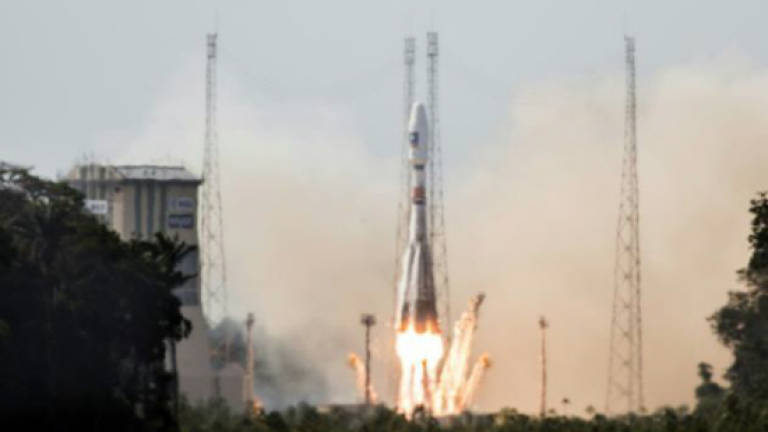Europe launches satnav orbiters

KOUROU: Europe hoisted two satellites into space Friday as it pushes to get its beleaguered Galileo satnav programme back on track.
Orbiters nine and 10 were launched from Europe's spaceport in Kourou, French Guyana, at 0208 GMT – bringing the satellite navigation system a third of the way to full deployment.
The project, a rival to America's GPS for navigation and search-and-rescue services, will ultimately sport 30 satellites, including six spares.
But it has been plagued by delays, technical glitches and budget issues that have called into question whether it will meet its deadline to start working next year.
Scientists won't know until hours after the launch whether the satellites were placed in the correct orbit around Earth.
In August 2014, satellites five and six were sent into a lopsided, elliptical trajectory.
The pair have since been manoeuvred into a more circular path, and are expected to be able to function with the rest of the constellation by next year.
"We should have (these) two satellites broadcasting navigation messages at almost the same (level) as the others at the very beginning of 2016," Galileo programme director Didier Faivre of the European Space Agency (ESA) told reporters Thursday.
The European Commission, which finances the project, aims to have 16 satellites in orbit by the end of 2016 to start providing initial satnav services, including applications for smartphones, in-car navigation and search-and-rescue location.
The March launch of satellites seven and eight had been delayed by three months for an investigation into last year's mishap.
The incident was blamed on frozen fuel pipes on the Soyuz rocket's fourth stage, called Fregat – a problem ESA says has since been fixed.
Faivre said full deployment will cost about seven billion euros ($7.8 billion), with another 500 million euros to be spent per year to maintain, operate and renew the satellites.
But it is not clear if Galileo will meet the 2016 deadline to start providing services.
"We are waiting for the green light from ESA," Paul Flament, head of the European Commission's Satellite Navigation Unit, said Thursday. – AFP